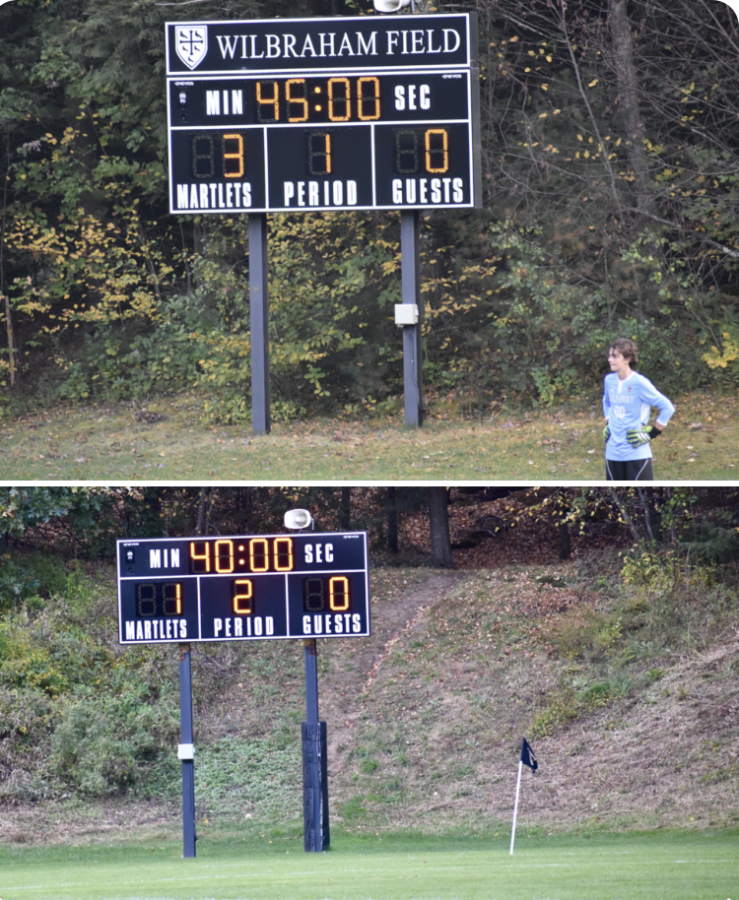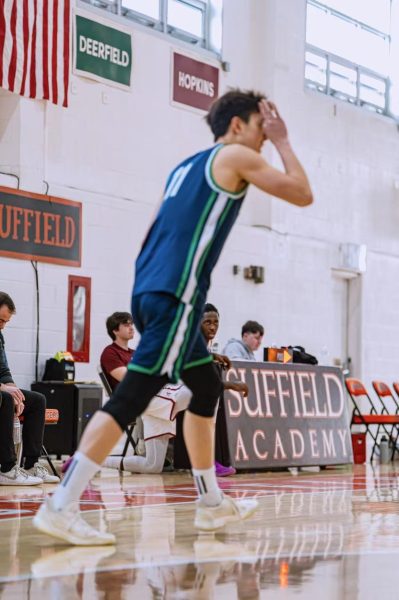Why Do Girls Only Play 80-Minute Games?
Inequality between NEPSAC soccer teams goes against the core values of the New England Preparatory School Athletic Council.
Girls high school soccer teams in the New England Preparatory School Athletic Council (NEPSAC), are allowed 80 minutes of field time during games, while boys soccer is allowed 90 minutes. This contradicts the athletic council’s value of “equity” listed in their July 2020 statement on its website.
“As a core value, NEPSAC believes in and is committed to diversity, equity, and inclusion among its member schools, student-athletes, coaches, and administrators,” the statement reads. However, the difference of game time leaves girls at a disadvantage.
NEPSAC soccer is the only program in the area that denies female soccer players the opportunity to play 45-minute halves. Public school rules allow both girls and boys teams to play 90-minute games.
Many female athletes in the NEPSAC community are striving to play soccer beyond their respective high schools.
Both Williston Varsity Soccer teams played 17 games in the 2021 season. When the game times of the 2021-22 Williston soccer season were calculated, it was discovered that the Williston boys’ soccer team played 2.8 more hours than the girls. This means the boys team played almost two more games this season than the girls.
Todd Jensen, the father of junior Annika Jensen, is disappointed with how gender inequality is still problem in the world.
“It is a shame that in today’s world that there are blatant examples of treating women and men differently,” Jensen, who is also a soccer coach, said.
Jensen finds it frustrating that NEPSAC requires three officials for boys matches and only two for girls matches, another evident contradiction of the core values of NEPSAC soccer.
Jensen says that this inequality can perpetuate a belief that women are less important than their male counterparts, and send an unconscious message to male players that they are better and more important than females.
He finds it sad that the schools that make up the NEPSAC have not recognized the inequality.
“They should be beacons on how to treat students of different genders, races and backgrounds,” he said. “While this inequity is specific to soccer, it exists in other sports as well.”
Six years ago, a petition began circulating on Change.org to demand equality within high school soccer.
“[We are] calling upon the New England Preparatory School Athletic Council (NEPSAC) to take action and correct the condition of gender inequality,” the petition stated.
This petition had 17,500 supporters and almost 20,000 signatures; however, no action was taken to correct the problem.
Annika Jensen ‘23, from Westfield, Mass., has played on the Williston Varsity Soccer team for four years. She is planning to pursue soccer in the future, and told The Willistonian she feels limited by this inequality.
“One of my best attributes is my stamina, so by playing shorter games I feel like I am unable to display one of my greatest skills as a soccer player,” she said.
Annika felt like this made her question whether people around her, such as coaches, athletic department members, or even players on the boys soccer team, think she is unable to handle a full 90-minute game.
“It makes me feel less supported and as if my ability to play the game is less respected,” she said.
In addition, she revealed she has lost confidence in talking about the game with others, especially with the boys soccer players on campus. This makes her feel like her hard work isn’t as impressive.
“Not having equal playing time enforces the stigma that boys athletics are more challenging and demanding,” she said. “Ideas like that being taught to young female athletes creates a negative mindset around athletics.”
Overall, Annika wishes to be given the same opportunities to improve and be allowed to experience the same resources as boys soccer players.
Mark Conroy, Williston Athletic Director, and past President of NEPSAC, is in support of equity across all sports.
“For as long as I have been on the NEPSAC Executive Board this has always been one of our guiding principles,” Conroy said. “In this particular case, the opinion of those schools who field girls’ soccer teams is very important to this decision. This question has come up but has not been supported by the Girls Soccer Coaches Association.”
Although the question of equal playing time has come up numerous times over the years, Conroy expressed that there are a number of factors that come into play which impact a safe playing experience.
The Girls Soccer Coaches Association has consistently been opposed to lengthening the 40-minute halves.
Conroy explained that the core values need to be honored but not at the expense of others.
“Equity is extremely important but not at the risk of safe play,” he said. “As important as equity is to decision making, maintaining a safe playing experience is also a primary consideration.”
The Willistonian reached out to Lamar Reddicks, the NEPSAC Coordinator of Diversity, Equity and Inclusion, but did not receive a reply in time for print.











